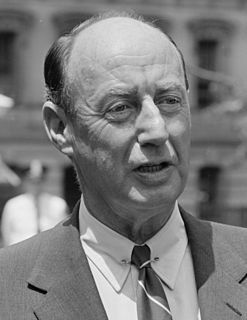A Quote by Morgan Ortagus
The foreign policy community in Washington has been arguing that America must put our values at the head of our foreign policy once again - and I couldn't agree more, so let's start by leading on women.
Related Quotes
Foreign policy always has more force and punch when the nation speaks with one voice. To remain secure, prosperous, and free, the United States must continue to lead. That leadership requires a president and Congress working together to fashion a foreign policy with broad, bipartisan support. A foreign policy of unity is essential if the United States is to promote its values and interests effectively and help to build a safer, freer, and more prosperous world.
If I were Donald Trump, I would definitely not pick Mitt Romney because it's very easy for Mitt Romney to have have a separate foreign policy operatus in the State Department that would run a dissenting foreign policy from the White House foreign policy. There, I think the populist America-first foreign policy of Donald Trump does run against a potential rival.
Maybe it's understandable what a history of failures America's foreign policy has been. We are, after all, a country full of people who came to America to get away from foreigners. Any prolonged examination of the U.S. government reveals foreign policy to be America's miniature schnauzer -- a noisy but small and useless part of the national household.
There are those who would draw a sharp line between power politics and a principled foreign policy based on values. This polarized view - you are either a realist or devoted to norms and values - may be just fine in academic debate, but it is a disaster for American foreign policy. American values are universal.
This is the problem with foreign policy - talking about foreign policy in a political context. Politics is binary. People win and lose elections. Legislation passes or doesn't pass. And in foreign policy often what you're doing is nuance and you're trying to prevent something worse from happening. It doesn't translate well into a political environment.




































